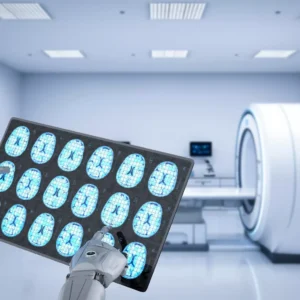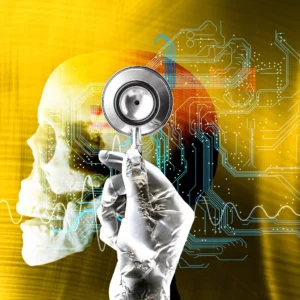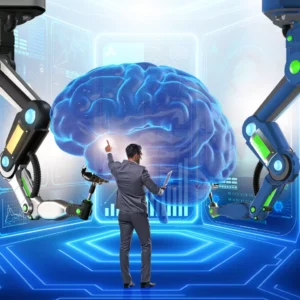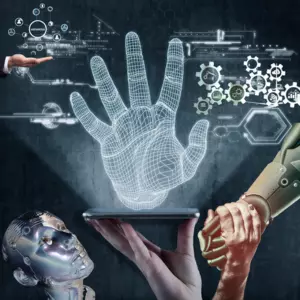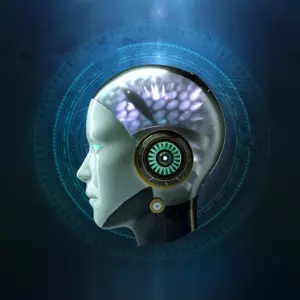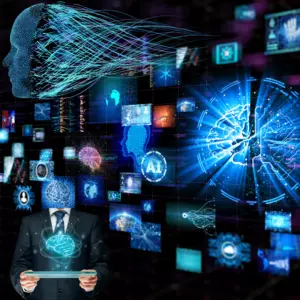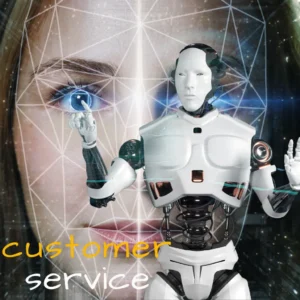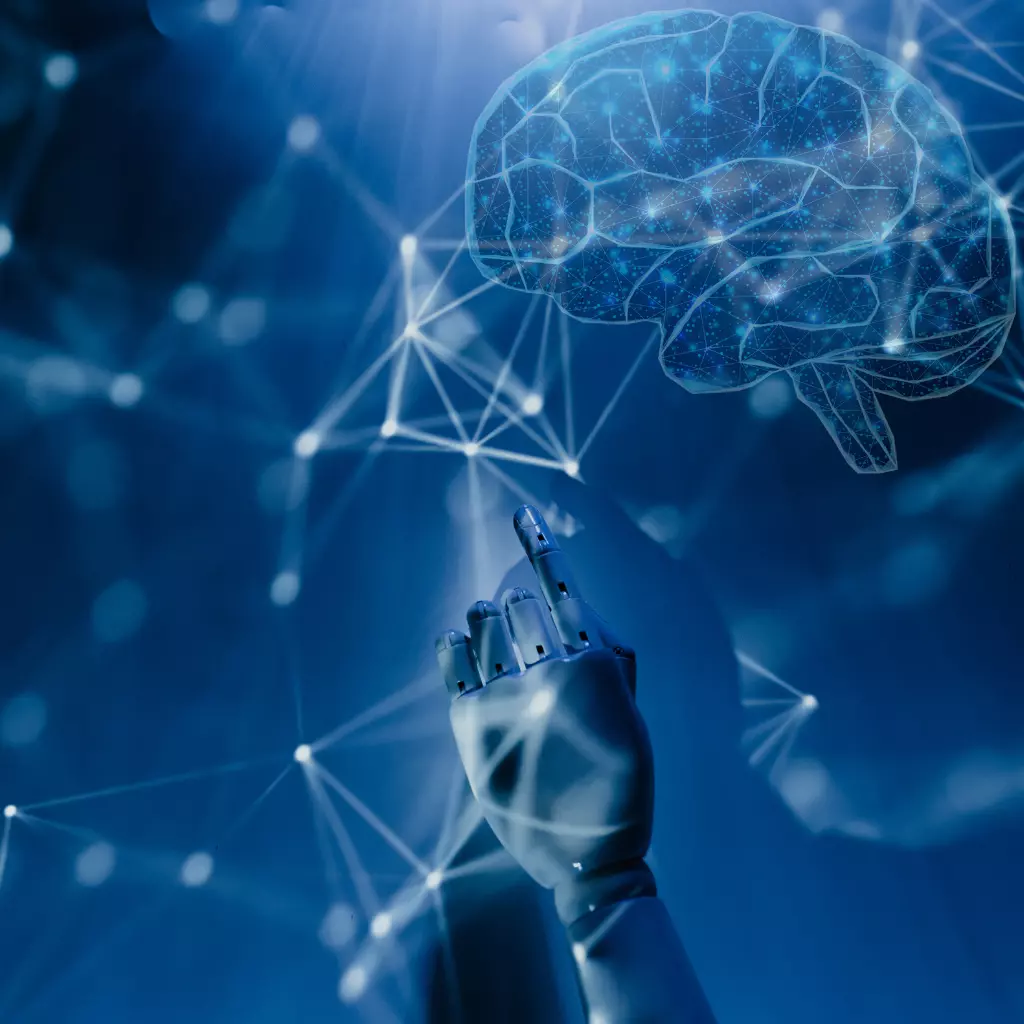
Mental Health Tech
AI-powered Mental Health Apps for Assessment and Therapy
Mental health is a pressing concern, now more than ever. The increasing demand for timely interventions and personalized treatments has ushered in a new era: the age of AI-powered mental health apps.
These innovative tools are not just digitizing therapy but revolutionizing it. Imagine a world where an app can predict a mental health crisis before it unfolds or a chatbot that provides instant support at 3 a.m. It’s not a distant dream but our present reality.
From tailoring treatments to each individual’s unique needs to bridging the gap between patients and therapists, AI is setting a new course in mental wellness.
As we traverse this digital mental health landscape, we’re not just looking at apps but a paradigm shift in care. Dive with us into this transformative journey as we unveil the possibilities and confront the challenges.
Table of Contents
Digital Mental Health Landscape
The 21st century has witnessed a seismic shift in how we approach mental health, primarily driven by technological advancements. At the forefront of this transformation are AI-powered mental health apps. Gone are the days when seeking therapy meant waiting weeks for an appointment. Now, with a tap on our smartphones, individuals have instant access to therapeutic tools and resources.
These apps range from mental health chatbots offering immediate emotional support to sophisticated platforms predicting potential mental health crises. The beauty of AI lies in its ability to learn and adapt constantly. For users, this means that the assistance they receive is increasingly personalized, a unique blend of human understanding and machine precision.
Beyond just individual therapy, the digital mental health landscape redefines group therapies, wellness workshops, and even how professionals undergo training. The union of technology and psychology is ushering in an era where care is not just accessible but also tailored, timely, and technologically advanced. As we continue to navigate this evolving space, the potential of AI-driven solutions in transforming mental health care becomes increasingly evident.
Predictive Analytics in Crisis Prevention
One of the most transformative applications of AI-powered mental health apps is their capacity for predictive analytics. By analyzing patterns in user behaviour, moods, and interactions, these apps can flag potential signs of a looming mental health crisis, often before the individual or their caregivers notice.
Observing speech patterns, social interactions, and writing style changes can reveal potential mental health challenges. Predicting mental health crises is no longer speculative; it’s tangible and actionable, thanks to AI.
Early warning means early intervention. With timely alerts, individuals can seek preventive care, adjust treatment plans, or even engage in therapeutic conversations with mental health chatbots. In this way, the merging of predictive analytics and mental health care doesn’t just respond to issues—it actively works to prevent them.
The true strength of predictive analytics lies in identifying potential problems and empowering individuals with the knowledge and resources to manage their mental well-being proactively. As we further integrate AI into mental health care, the future promises more precise, personalized, and preventative approaches to wellness.
AI's Role in Therapy Personalization
The mental health journey is deeply personal, and there’s no ‘one-size-fits-all’ solution. Enter AI-powered mental health apps, which are reshaping therapy by emphasizing personalization. AI’s ability to analyze vast amounts of data means it can discern patterns, habits, and triggers unique to each individual.
Think of these apps as digital companions that understand you. They evolve with you, noting subtle changes in your behaviour and mood and adapting therapeutic interventions accordingly. Over time, these tools can suggest strategies tailored to your needs, turning generalized advice into personalized insights. This is personalizing mental health treatment at its finest.
Moreover, virtual therapy and AI intertwine to provide real-time feedback during sessions. For instance, by analyzing speech and facial cues, AI can guide therapists to explore certain emotions or topics in greater depth.
Are you tired of feeling like just another number in therapy? With personalized treatment, you can finally take control of your mental health journey. By tailoring the process to your specific needs, you’ll be better equipped to relate to the experience and take actions that make a difference. It’s the difference between reading a general self-help book and having a diary written exclusively about you. This depth of customization, facilitated by AI, promises to make therapy more efficient, practical, and engaging for all.
The Rise of Mental Health Chatbots
In the digital age, people expect immediate responses. Mental health chatbots have risen to meet this need in AI-powered mental health apps. These chatbots, powered by advanced AI algorithms, provide instant, round-the-clock support to those seeking help.
These aren’t mere text-based interfaces. They’re designed with empathy, simulating human-like conversations. For someone struggling with anxiety at 2 a.m., a chatbot offers an immediate avenue for venting, guidance, or simple reassurance. They’ve transformed how we think of “first aid” in mental health, providing direct assistance when human therapists aren’t available.
Another boon of these chatbots is anonymity. Many individuals hesitate to seek help due to stigma or fear of judgment. Chatbots provide a non-judgmental space for people to express themselves freely.
However, with the proliferation of mental health chatbots, ensuring quality is an underlying responsibility. The conversations they facilitate must be rooted in evidence-based practices. As these chatbots continue to evolve, they symbolize a significant stride in accessibility and immediacy in mental health care, blending technology and empathy in a way we hadn’t previously imagined.
Merging AI and Traditional Therapeutic Methods
In the world of mental health, tradition meets innovation as therapists increasingly integrate AI-powered mental health apps into their practices. This merger isn’t about replacing the human touch but enhancing it, marrying the wisdom of traditional therapeutic methods with AI’s precision and scalability.
The strength of traditional therapy lies in its human-centred approach. A trained therapist can navigate complex emotional terrains, offering validation, empathy, and insight. The result is a potent blend when this irreplaceable human touch is combined with AI’s data-driven insights. AI can, for instance, monitor a patient’s mood variations and provide therapists with detailed analyses, enabling them to tailor their sessions more effectively.
This integration of AI with traditional therapy also aids in between-session support. Patients can engage with mental health chatbots, undergo AI-driven cognitive behavioural therapy exercises, or even receive personalized content recommendations to further their healing. It’s about filling the gaps and ensuring support is available outside the therapist’s office.
The goal is to create a holistic, comprehensive mental health care model. One that respects traditional therapy’s foundational principles while leveraging AI’s immense potential to create a more connected, informed, and responsive care framework.
Ethics and Patient Privacy
As the allure of AI-powered mental health apps grows, so does the imperative to address ethical concerns, chief among them being patient privacy. With users pouring their thoughts, fears, and vulnerabilities into these platforms, the weight of responsibility is immense.
Keeping your personal information secure is of utmost importance to us. We understand that when you share confidential information during your sessions or with mental health chatbots, it is crucial to protect it from potential breaches. Be assured that we prioritize the safety and privacy of your data to provide you with a secure and trustworthy experience. Users trust these platforms with their innermost feelings; a breach isn’t just a technical issue but a personal violation.
Yet, beyond data security, there’s the matter of data use. These apps continuously gather information, analyzing patterns to offer better support. But where is this data going? Who has access? Transparent policies ensure that data isn’t used unethically or sold to third parties.
Lastly, there’s the very nature of the AI’s interaction. Ensuring that the guidance and feedback provided by these apps are ethically sound and evidence-based is crucial. Misguided or overly generalized advice could lead to unforeseen consequences.
In essence, while the ethics of AI in mental health herald a new frontier in care, they also mandate a rigorous, unwavering commitment to integrity, transparency, and the safeguarding of the sacred trust patients place in these digital tools.
Training Mental Health Professionals
As AI-powered mental health apps ascend in popularity and efficacy, there’s an emerging need to prepare our mental health professionals for this digital revolution. Adapting to AI isn’t just about integrating new tools; it’s about reshaping the therapeutic paradigm.
To begin, professionals need to understand the intricacies of these apps, from their data collection methods to their predictive analytics capabilities. A deep dive into how AI perceives, analyses, and responds to human emotion is crucial. This ensures therapists can complement their sessions with AI insights, making therapy more holistic.
Next is navigating the fine line between technology and human touch. Professionals must be trained to use these tools to keep them from overshadowing the core of therapy: human connection. Training therapists for AI tools isn’t just technical—it’s philosophical.
Moreover, ethical considerations, as discussed, come to the fore. Therapists must be well-versed in the potential pitfalls, privacy concerns, and best practices associated with AI tools. This equips them to guide their patients in making informed decisions about engaging with these platforms.
As the digital landscape of mental health evolves, the onus is on educational institutions and governing bodies to ensure that professionals are not just AI-ready but AI-fluent, merging technology with timeless therapeutic principles.
Case Study: A Successful AI Mental Health Model
One AI-powered mental health app stood out in recent years, demonstrating the profound impact of marrying technology with therapeutic principles. Let’s delve into the success story of “MindSage” (a fictional app).
MindSage’s mission is to provide personalized support to those battling anxiety by utilizing AI algorithms to monitor user inputs, from text entries to voice modulations, to gauge their emotional state.
What set MindSage apart was its unique AI-driven cognitive behavioural therapy approach. Instead of offering generic solutions, the app dynamically crafted responses based on the user’s current and past interactions. Over time, the app learned user behaviours, predicting anxiety spikes and offering preventive interventions.
Furthermore, MindSage seamlessly integrated with traditional therapy. Users could share their app insights with therapists, ensuring a holistic view of their mental landscape. This integration of AI with conventional therapy aspect bolstered its credibility.
The results were astounding. Users reported a 60% reduction in acute anxiety episodes within six months of usage. Their testimonials highlighted the app’s intuitive understanding, immediate support, and the added benefit of therapist integration.
MindSage’s triumph underscores the limitless potential of AI-powered mental health solutions when executed with precision, empathy, and a deep understanding of therapeutic needs.
The Challenges Faced
Despite the breakthroughs of AI-powered mental health apps, the journey to widespread acceptance and implementation hasn’t been without hurdles. As the adage goes, with great power comes great responsibility, and AI in mental health is no exception.
One paramount challenge is data privacy. Users share intimate, vulnerable aspects of themselves with these platforms. Ensuring this data remains confidential and is correctly used is a colossal task. Moreover, how do these apps balance personalization with privacy? Fine-tuning this equilibrium is a work in progress.
Let’s talk about over-reliance on mental health apps. These apps are handy but should always be considered a replacement for human therapists. After all, there’s no substitute for the comfort and guidance that a natural person can provide. It is crucial to ensure that users view them as a supplementary tool rather than a primary solution. The impersonal nature of AI can’t wholly grasp the nuanced human psyche.
There’s also the risk of generalized advice. AI, no matter how advanced, operates on algorithms. Ensuring its personalized, accurate, and ethically sound feedback demands rigorous oversight. One misstep, one misinterpreted emotion, could have far-reaching implications.
Lastly, navigating the ethics of AI in mental health poses a conundrum. From data usage policies to ensuring users’ mental well-being, defining ethical boundaries is a continuous endeavour.
While AI’s promise in mental health is boundless, its challenges underscore the need for meticulous, conscious, and ethically driven advancements.
Future Perspectives
The horizon for AI-powered mental health apps looks expansive and promising. As technology advances, so will the capabilities of these apps, promising a future where mental health support is accessible, personalized, and immediate.
One exciting avenue is real-time emotional analysis. Envision an app that doesn’t just respond when you input data but understands your emotional state from voice tones, facial expressions, or text patterns. This offers the potential for immediate interventions, especially during moments of distress.
Integration is another frontier. While apps today complement therapy, future models might have a more symbiotic relationship with traditional therapeutic methods. Imagine a session where a therapist consults AI insights in real-time, offering solutions tailored to that moment.
However, the most profound impact might be in democratizing mental health care. With AI-driven cognitive behavioural therapy and mental health chatbots, quality support could reach corners of the world where traditional treatment is scarce.
Yet, while the potential is exhilarating, moving forward with caution is essential. Balancing innovation with ethics, ensuring patient privacy, and maintaining the irreplaceable human touch in therapy are priorities that should guide this digital revolution.
In summary, the future beckons a seamless blend of AI and mental health care, aiming to create a world where quality support is a right, not a privilege.
Conclusion
The landscape of mental health care is undeniably shifting, with AI-powered mental health apps leading the charge. From the incredible potential of predictive analytics in crisis prevention to the transformative power of virtual therapy and AI, we’re on the cusp of a new era. The surge in mental health chatbots and AI-driven cognitive behavioural therapy has made quality care more accessible, bridging gaps and democratizing mental health support.
However, integrating AI with traditional therapy remains paramount as we embrace these tools. The success stories, like our case study, showcase the limitless possibilities. However, challenges such as data privacy, AI ethics in mental health, and ensuring the genuine human connection isn’t lost amidst algorithms are pressing concerns. Training therapists for AI tools will be essential as we navigate this evolving landscape.
The road ahead is both exhilarating and demanding. While AI’s role in personalizing mental health treatments offers hope, maintaining patient trust, transparency, and quality care is crucial. Our collective aim? A harmonious blend of technology and empathy ensures a brighter, more inclusive future for mental health care.
Related Articles
- AI in Telehealth: Revolutionizing Remote Care
- Navigating the Next: AI’s Role in Healthcare Predictive Analytics
- Transforming Medical Imaging with AI Capabilities in Radiology
- AI in Genetic Data Analysis: Personalizing Medicine
- AI in Diagnostics: A New Era of Precision and Accuracy
- Smart Hospitals: The Role of AI in hospital operations
- Mental Health Tech: AI-powered Mental Health Apps for Assessment and Therapy
- AI-Powered Drug Discovery: A Revolution in Pharma
- Medical Robots Enhanced by AI: Transforming Surgeries and Care
- Wearable Health Tech: AI-driven health wearables
- AI’s role in chronic disease management
- Neural Interfaces and AI: Bridging Minds and Machines
- Digital Health Platforms: The Power of AI Integration
- AI in Epidemiology: Predicting and Controlling Outbreaks
- AI in Rehabilitation: Personalized Recovery Pathways
- AI in Predictive and Preventive Care: A Proactive Approach
- AI in Home Healthcare: Personal Health Management
- Revolutionise Healthcare with IPA Tools: Streamlining Processes, Improving Efficiency, and Enhancing Patient Care
- Other Articles on AI Usage in Healthcare
- Other Articles on AI usage in different industries

Arindam Roy
An Automation Consultant with 25+ years of IT Experience
Forbes Articles related to AI usage in Healthcare:



